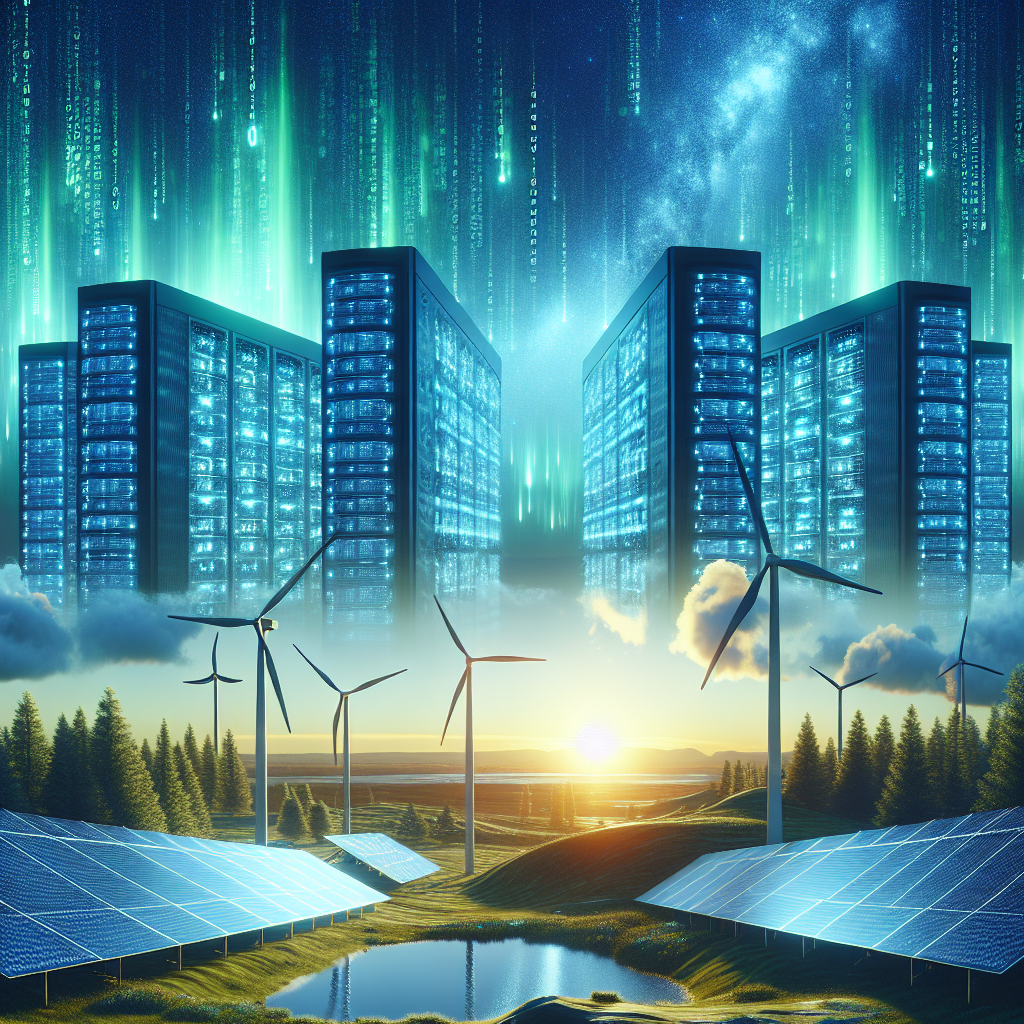The Future of AI in Renewable Energy
Artificial Intelligence (AI) has been rapidly advancing in recent years, revolutionizing various industries and changing the way we live and work. One of the areas where AI is making a significant impact is in renewable energy. With the increasing demand for clean and sustainable energy sources, AI is playing a crucial role in optimizing the efficiency and effectiveness of renewable energy systems. In this article, we will explore the future of AI in renewable energy and how it is reshaping the industry.
AI in Renewable Energy
AI technologies, such as machine learning and deep learning algorithms, are being used to optimize the operations of renewable energy systems, including solar panels, wind turbines, and energy storage systems. These technologies can analyze vast amounts of data in real-time, predict energy production and consumption patterns, and make automated decisions to maximize energy efficiency and reduce costs.
One of the key applications of AI in renewable energy is predictive maintenance. By analyzing data from sensors and monitoring systems, AI algorithms can predict when components of renewable energy systems are likely to fail and schedule maintenance before a breakdown occurs. This helps to prevent costly downtime and ensures that renewable energy systems operate at peak performance.
Another area where AI is making a significant impact is in energy forecasting. By analyzing historical data, weather patterns, and other relevant factors, AI algorithms can accurately predict energy production from renewable sources, such as solar and wind, and optimize energy distribution and storage to meet demand. This helps to reduce reliance on fossil fuels and minimize the environmental impact of energy production.
AI is also being used to optimize the design and placement of renewable energy systems. By analyzing geographic and environmental data, AI algorithms can determine the most efficient locations for solar panels, wind turbines, and other renewable energy infrastructure. This helps to maximize energy production and minimize costs, making renewable energy more competitive with traditional energy sources.
The Future of AI in Renewable Energy
As AI technologies continue to advance, the future of AI in renewable energy looks promising. Here are some key trends that are shaping the industry:
1. Autonomous Energy Systems: AI-powered autonomous energy systems are becoming a reality, where renewable energy systems can operate and optimize themselves without human intervention. These systems can respond to changing energy demand, weather conditions, and other factors in real-time, maximizing energy efficiency and reducing costs.
2. Grid Optimization: AI is being used to optimize energy distribution and storage on the grid, ensuring a reliable and stable supply of renewable energy. By analyzing data from sensors and smart meters, AI algorithms can predict energy demand, detect anomalies, and adjust energy flow to meet demand.
3. Energy Trading: AI is enabling peer-to-peer energy trading platforms, where consumers can buy and sell excess energy from renewable sources. By using blockchain technology and AI algorithms, these platforms can match buyers and sellers, optimize energy pricing, and facilitate secure transactions.
4. Energy Storage: AI is being used to optimize the performance of energy storage systems, such as batteries and pumped hydro storage. By analyzing data on energy consumption patterns and grid demand, AI algorithms can predict when to store and release energy to maximize efficiency and reduce costs.
5. Renewable Energy Integration: AI is helping to integrate renewable energy sources into the grid more effectively. By analyzing data on energy production, consumption, and storage, AI algorithms can balance supply and demand, optimize energy distribution, and reduce the reliance on fossil fuels.
FAQs
Q: How is AI being used in solar energy?
A: AI is being used in solar energy to optimize the efficiency of solar panels, predict energy production, and automate maintenance tasks. By analyzing data on sunlight intensity, weather conditions, and energy consumption patterns, AI algorithms can maximize the energy output of solar panels and reduce costs.
Q: What are the benefits of using AI in renewable energy?
A: The benefits of using AI in renewable energy include increased energy efficiency, reduced costs, improved reliability, and reduced environmental impact. By optimizing energy production, storage, and distribution, AI technologies can help to accelerate the transition to clean and sustainable energy sources.
Q: How can AI help to reduce the reliance on fossil fuels?
A: AI can help to reduce the reliance on fossil fuels by optimizing the performance of renewable energy systems, maximizing energy efficiency, and integrating renewable energy sources into the grid more effectively. By analyzing data and making automated decisions, AI technologies can help to shift the energy mix towards cleaner and more sustainable sources.
In conclusion, the future of AI in renewable energy is bright, with AI technologies playing a crucial role in optimizing energy production, distribution, and storage. By harnessing the power of AI, we can accelerate the transition to clean and sustainable energy sources, reduce costs, and minimize the environmental impact of energy production. As AI continues to advance, we can expect to see even greater innovations in renewable energy systems and a brighter future for our planet.

